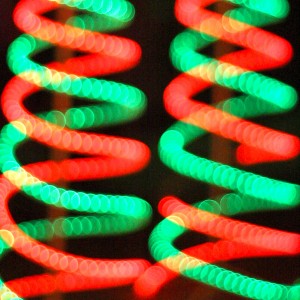DNA is the genetic information contained in all cells, including sperm. Intact sperm DNA is necessary for normal egg fertilization (1, 2). Sperm that has DNA with breaks in the strands is abnormal, and is called “DNA fragmentation” This may cause sperm to function poorly and is not measured by the standard semen analysis. There are situations where sometimes the standard semen analysis does not tell us the entire story. Therefore testing for DNA breaks or fragmentation may be helpful to identify a male factor problem in some cases.

Conditions resulting in increased sperm DNA fragmentation include: smoking, excessive alcohol, fever or infection, testicular trauma, anatomic abnormalities such as varicoceles, environmental chemicals or radiation, advanced paternal age, cancer and its treatments, and intrinsic genetic factors (1, 2). These are men to consider testing for sperm DNA fragmentation levels. DNA fragmentation testing may also be considered in patients with prolonged infertility of unknown origin, poor outcomes after in assisted reproductive technologies (such as poor fertilization and poor embryo development) and recurrent miscarriages (1). Strategies to decrease sperm DNA fragmentation levels may include antioxidant supplementation, lifestyle modifications, antibiotics or varicocele repair.
Sperm DNA fragmentation may affect your ability to get pregnant. However, the data on this is very unclear. It appears that the more abnormally fragmented DNA you have, the lower chance of getting pregnant. (2). For intrauterine insemination (IUI), early data found that high DNA fragmentation was associated with a lower pregnancy and delivery rates, however, has not been not confirmed in subsequent studies (2). High DNA fragmentation was associated with a mild, but significant reduction in pregnancy rates with in vitro fertilization (IVF) (2).
Sperm DNA fragmentation seems to have a higher correlation with conventional IVF than intracytoplasmic sperm injection (ICSI) (1, 2,4). Because of this data, most clinicians would agree that while sperm with damaged DNA may have a lower ability to cause a natural pregnancy, it is still possible to achieve a pregnancy with ICSI (1).
Once pregnant, couples with high levels of DNA fragmentation have been found to have a trend for increased miscarriage rates (1, 2). These offspring have (in small series) demonstrated an increased incidence of some conditions, including schizophrenia and achondroplasia (1). This is relatively new data and needs to be confirmed with larger studies.
Overall, there is an association with high levels of DNA fragmentation and reduced fertility. However, at present testing cannot be said to predict pregnancy outcomes with any reproductive modality, and routine testing is not recommended (2). Studies are needed to identify which men would benefit most from testing, and presently the American Society of Reproductive Medicine does not recommend the routine use of DNA integrity testing in the evaluation of the infertile couple (2).
In summary, there are situations where a standard semen analysis appears to be ok, but pregnancy is still not happening. Sperm testing for DNA fragmentation is one of the more sophisticated tests that may be helpful to identify a subtle male factor issue in such cases.
References:
- Sakkas D, Alvarez JG. Sperm DNA fragmentation: mechanisms of origin, impact on reproductive outcome, and analysis. Fertility and sterility 2010;93:1027-36.
- Practice Committee of the American Society for Reproductive M. The clinical utility of sperm DNA integrity testing: a guideline. Fertility and sterility 2013;99:673-7.
- Zini A. Are sperm chromatin and DNA defects relevant in the clinic? Systems biology in reproductive medicine 2011;57:78-85.
- Collins JA, Barnhart KT, Schlegel PN. Do sperm DNA integrity tests predict pregnancy with in vitro fertilization? Fertility and sterility 2008;89:823-31.



